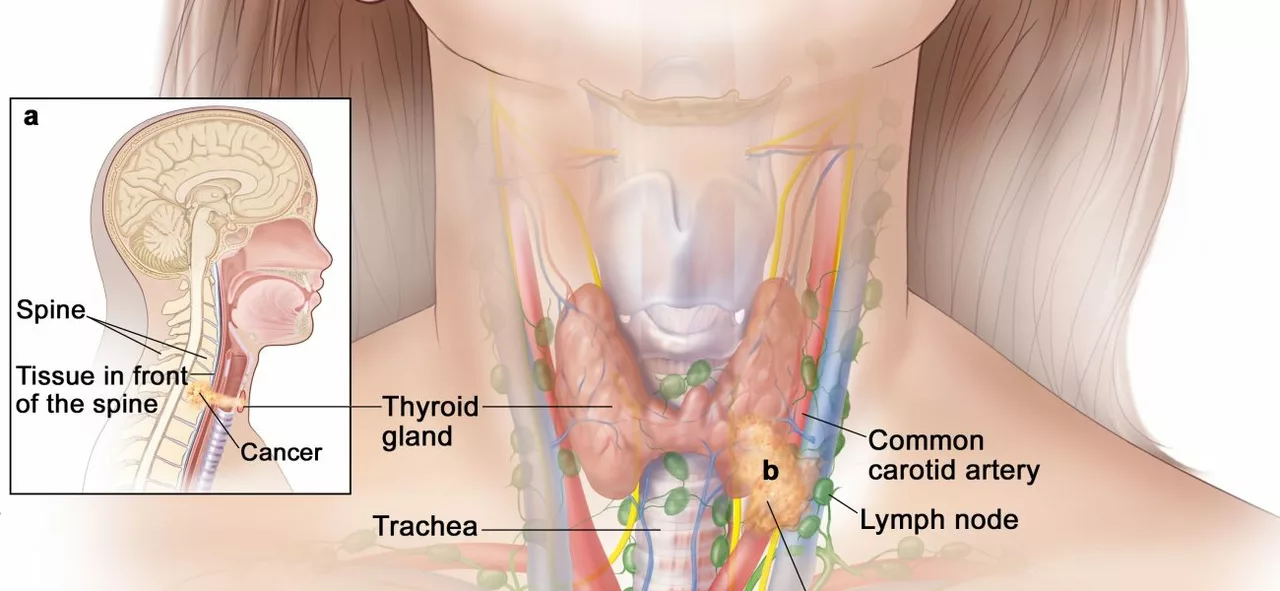Thyroid cancer often gets more attention than it needs: many types are slow-growing and treatable. Still, hearing the diagnosis is scary. Here’s straightforward info you can use right away—what to watch for, how doctors diagnose it, common treatments, and simple steps to feel more in control.
Most people notice a lump or swelling in the front of the neck. Other signs can include voice changes, trouble swallowing, or a persistent cough. Many cases are found on routine neck exams or incidentally during imaging for another issue. If your doctor worries about a nodule, they’ll likely recommend an ultrasound and a fine needle biopsy to check cells without major surgery.
There are different types: papillary (most common), follicular, medullary, and anaplastic (rare and more aggressive). Your pathology report tells which one you have, and that guides treatment choices.
Surgery is the main treatment. That can mean removing one lobe (lobectomy) or the whole thyroid (total thyroidectomy). For many papillary and follicular cancers, surgery alone can cure the disease.
After surgery, doctors may use radioactive iodine (RAI) to destroy leftover thyroid tissue or microscopic cancer cells. RAI works only for cancers that absorb iodine—your team will test for that. Some patients need external radiation or chemotherapy, usually for aggressive or advanced cases.
When the thyroid is removed, you’ll take levothyroxine, a daily pill that replaces thyroid hormone. The dose is adjusted to keep you feeling well and, sometimes, to slightly suppress thyroid-stimulating hormone (TSH) to lower recurrence risk. Regular blood tests track this.
Follow-up is ongoing: neck ultrasounds and blood tests for thyroglobulin (a tumor marker) help spot recurrence early. Most people do well with routine monitoring and simple medication adjustments.
If genetics are a concern—especially with medullary thyroid cancer—your doctor may suggest genetic testing and family screening.
Ask for a surgeon who does thyroid operations regularly; outcomes are better with experienced teams. Before surgery, discuss voice and calcium risks and how they’ll be handled. After surgery, keep track of symptoms like numbness or extreme tiredness and report them fast—low calcium or incorrect thyroid dose are common fixes.
Plan thyroid hormone timing: take levothyroxine on an empty stomach and avoid taking it with calcium or iron within four hours. If you buy medications online, choose verified pharmacies and keep your prescriptions current—wrong dosing or fake pills are real risks.
Consider a second opinion for big decisions like total thyroidectomy vs. lobectomy. For younger patients, talk with your team about fertility and pregnancy planning—treatment and hormone doses can be adjusted safely.
Dealing with thyroid cancer is easier when you know what to expect and who to ask. Keep a list of questions, bring someone to appointments, and use reliable resources for medication and follow-up care. If you want, our site has guides on medications, safe online pharmacies, and what to expect at each stage of treatment.

As a concerned parent, I want to share some vital information about thyroid cancer in children. The exact cause is unknown, but factors like radiation exposure and genetics can increase the risk. Common symptoms include a lump in the neck, difficulty swallowing, and voice changes. Early diagnosis is crucial, so it's important to consult a doctor if you notice these signs. Treatment options vary depending on the stage and type of cancer, but commonly include surgery, radioactive iodine therapy, and hormone replacement therapy.
READ